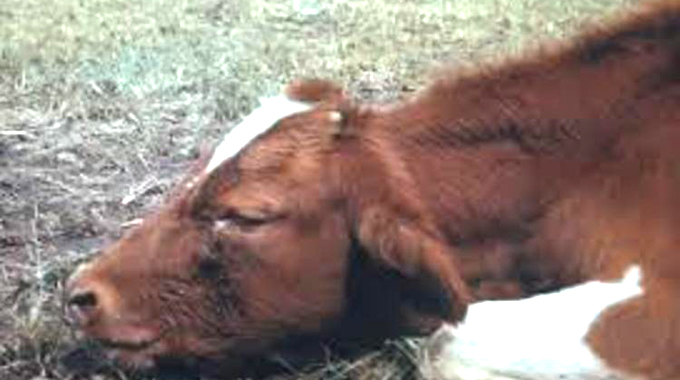Progress recorded in containing January disease

Precious Manomano Herald Reporter
Progress has been recorded in containing theileriosis better known as January disease which wreaked havoc nationwide killing thousands of livestock, in the past two years.
Government has introduced a plethora of measures to fight the deadly disease including dip tank rehabilitation, production of local vaccines, dipping, introduction of Presidential tick grease among others.
Following these measures, the country has witnessed a 50 percent reduction in the number of tick borne diseases.
Acting Deputy Director of Veterinary Field Services Dr Reverend Spargo said dipping remains the panacea to containing January disease.
“For the dipping program to work efficiently all cattle in a particular area should attend the dipping session, failure of which the undipped cattle will maintain for ticks in the pastures putting the health of the rest of the cattle sharing same pastures at risk. We applaud and implore the traditional leaders who are playing a crucial role in encouraging community members to attend dipping sessions. In instance where one does not attend the dipping session the law is taking its course and such are being prosecuted for contravening provisions of the cattle cleansing regulations of 1993.
“These make it compulsory for farmers to bring cattle to the dip tank,” he said. Dr Spargo assured farmers that they have enough chemicals in stock to combat the disease.
“So far Government has stocked adequate dip chemicals to last the end of the rainy season which represents the most critical period with high tick activity.
“To ensure national dipping program runs smoothly, Government has invested heavily on the rehabilitation of the national dipping infrastructure which comprise of over 4 000 dip tanks dotted across the country,” he said.
He added that farmers can follow 5-5-4-day dipping interval in cases of theileriosis outbreaks to break the cycle of disease transmission.
The provision of tick grease under the Presidential tick grease program has also been a game changer.
The culprit ticks are known to prefer feeding from cattle ears and the targeted application of tick grease inside the ears complemented the dipping program very well.
Dr Spargo said farmers have to report any suspected cases of the disease to the Veterinary offices immediately so that control measures can be instituted.
Such as imposing a 28-day quarantine on the affected areas to prevent further spread of the disease and intensive cattle dipping.
The common clinical signs that farmers notice in diseased cattle include swollen lymph nodes especially those behind the ears and in front of the shoulders and difficulty breathing.
Recently, chief director in the Department said it is important for farmers to intensify dipping of their livestock and follow the required intervals, especially during the rainy season to prevent the spread of tick-borne diseases since livestock is key to rural development.
“These diseases are strongly controlled by dipping. We gave farmers over two million kg of the Presidential Tick Grease programme over the last two years,” he said.
“We are doing a lot in reducing tick-borne diseases, including repairing dip tanks and construction. We are also celebrating a milestone in producing a vaccine for January disease to prevent cattle deaths. We have adequate chemicals in stock,” he said.
The department has capacitated extension staff with Information and Communication Technology (ICT) gadgets to allow for quick reporting of diseases, allow for continuous online training of staff on the latest control measures and better interaction with farmers.
Most extension staff have WhatsApp farmer groups where they also share information on livestock production and health.







Comments